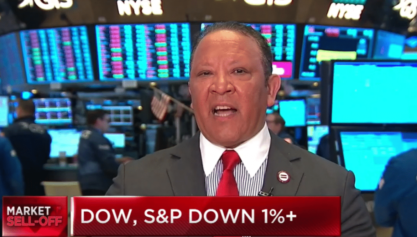
But the Fed’s numbers indicate that the number of African-Americans who meet the definition of long-term unemployed—that is, out of work for at least six months—is still more than double the rate for the overall population.
The proportion of the workforce that is long-term unemployed is now 1.98 percent, which is less than half of the record high of 4.4 percent it reached in 2010. The long-term unemployment rate for African-Americans is going down, too, currently standing at 5.1 percent. But that rate is still much higher than the 3.4 percent for whites in 2010, when everyone’s numbers were escalated during the Great Recession.
“The improvement in the labor market is reaching the long-term unemployed,” Heidi Shierholz, an economist at the Economic Policy Institute, told the New York Times. “They are benefiting from the modest but measurable improvement in the labor market.”
The improvement in the long-term rate is largely responsible for the overall unemployment rate dropping down to the current level of 6.1 percent.
“In many ways the fight against unemployment during the recent recovery has been mainly one of bringing down the long-term unemployment rate,” Federal Reserve economists Tomaz Cajner and David Ratner said in a memo on the Fed website. “By the end of 2010, short-term unemployment rates were only 1/2 percentage point above their pre-recession levels, while the long-term unemployment rate was markedly elevated. Since then, about two-thirds of the decline in the aggregate unemployment rate can be accounted for by a retracing of the long-term unemployment rate.”
Since the end of 2013, “the long-term unemployment rate dropped 0.5 percentage point, thereby accounting for almost the entire decline” in the overall unemployment rate, the economists said.
This means that for the first time in five years, less than a third of all unemployed workers have been out of work for at least six months. According to the Fed, the drop in the long-term unemployment rate in the first six months of 2014 was fastest drop in more than half a century.
Though the rate is dropping, the long-term rate is still surprisingly high for the well-educated. According to the Fed, over the most recent 12 months, about 37 percent of unemployed workers with advanced degrees had been out of work for more than six months.
“It is not just the problem of people who don’t have any skills and can’t find work,” Katharine G. Abraham, a former commissioner of the Bureau of Labor Statistics who now is a professor at the University of Maryland, told the Times.

